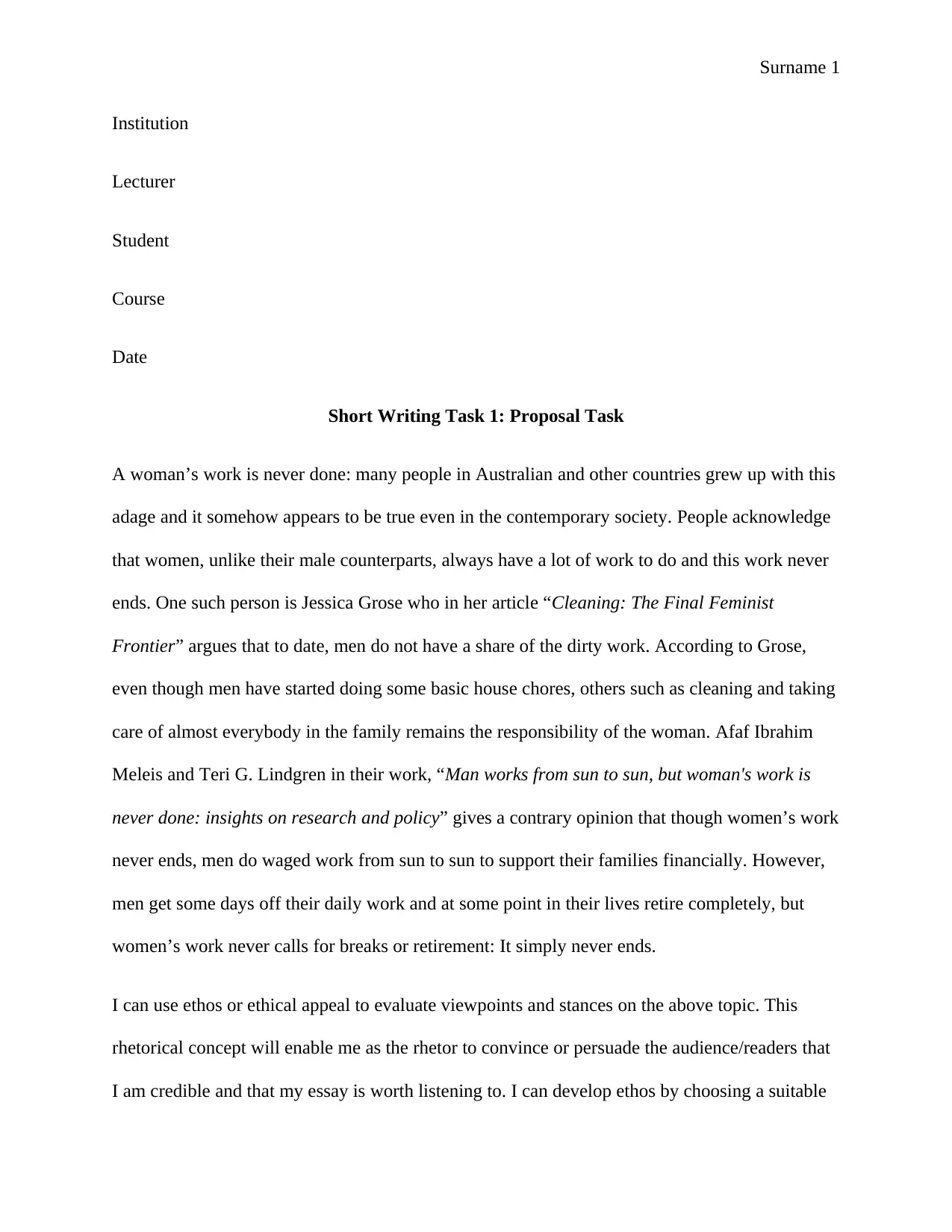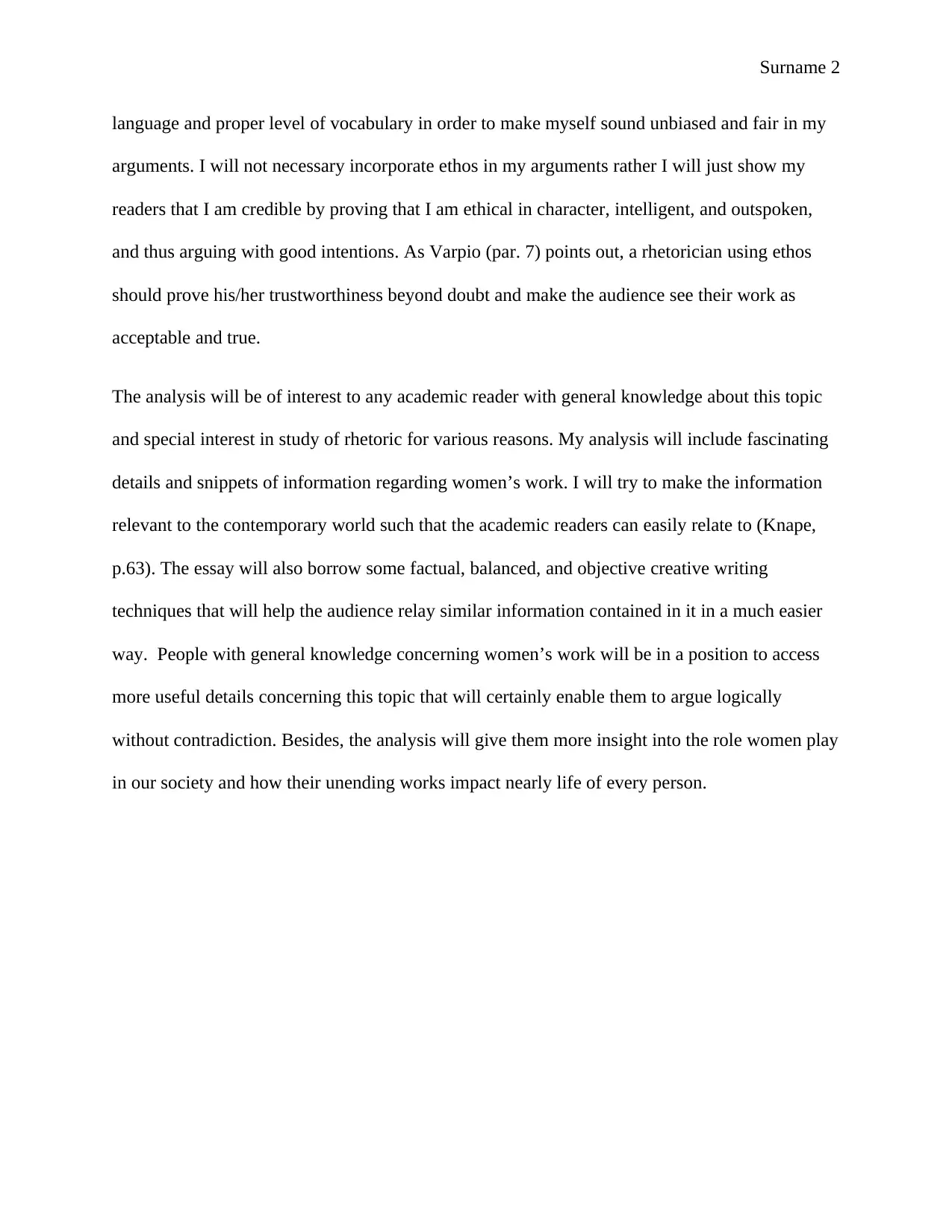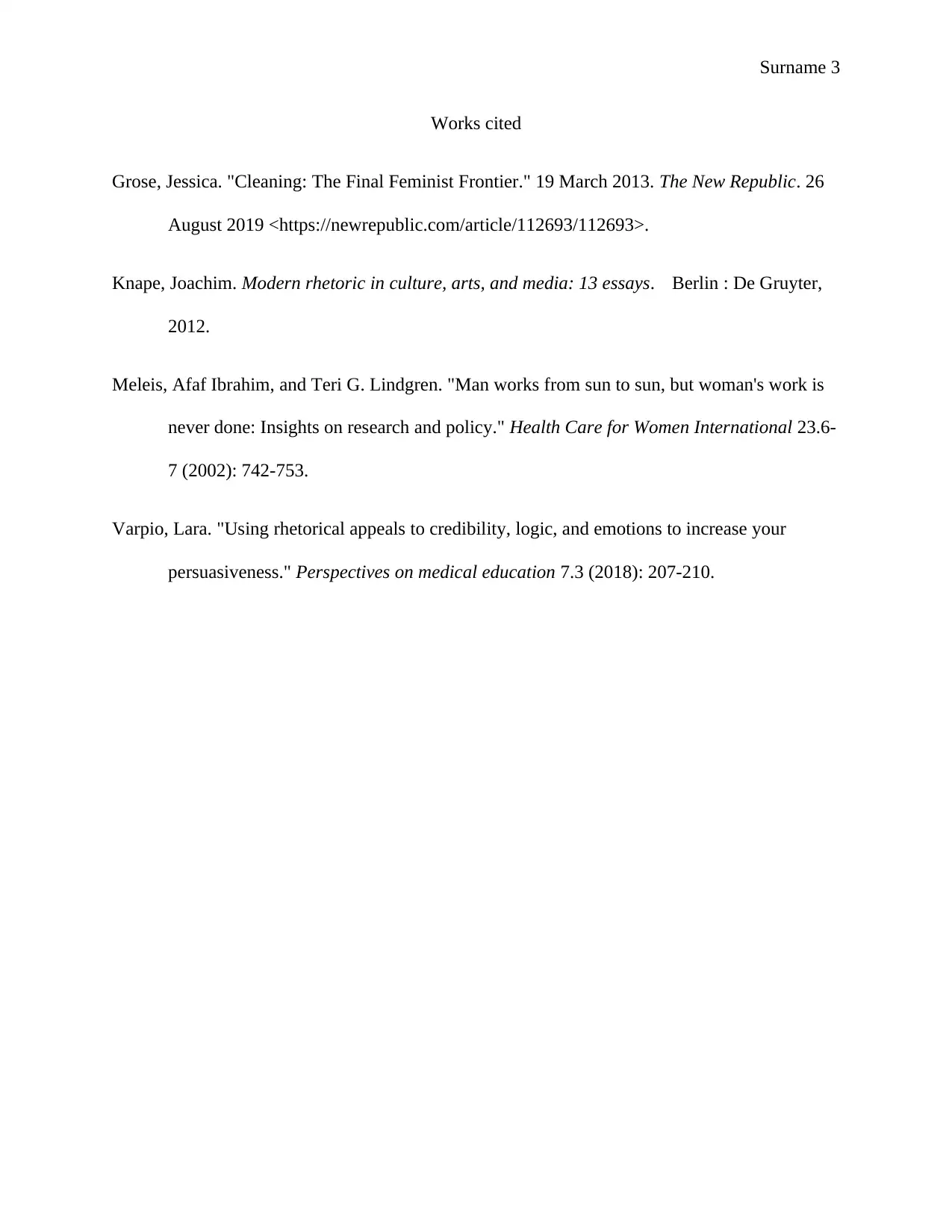Proposal: Ethos and Rhetorical Analysis of Women's Unending Work
VerifiedAdded on 2022/09/14
|3
|680
|30
Essay
AI Summary
This essay presents a proposal for a rhetorical analysis focusing on the concept of women's unending work, drawing from Jessica Grose's article "Cleaning: The Final Feminist Frontier" and contrasting it with perspectives from Afaf Ibrahim Meleis and Teri G. Lindgren. The proposal suggests using ethos, or ethical appeal, to evaluate various viewpoints on the topic, emphasizing the importance of credibility and trustworthiness in persuasive arguments. The analysis aims to provide insights into the societal impact of women's work and its relevance to contemporary issues, employing balanced and objective creative writing techniques to enhance understanding. The essay intends to offer academic readers a deeper understanding of women's roles and the implications of their continuous labor in modern society. Desklib provides past papers and solved assignments for students.
1 out of 3




![[object Object]](/_next/static/media/star-bottom.7253800d.svg)